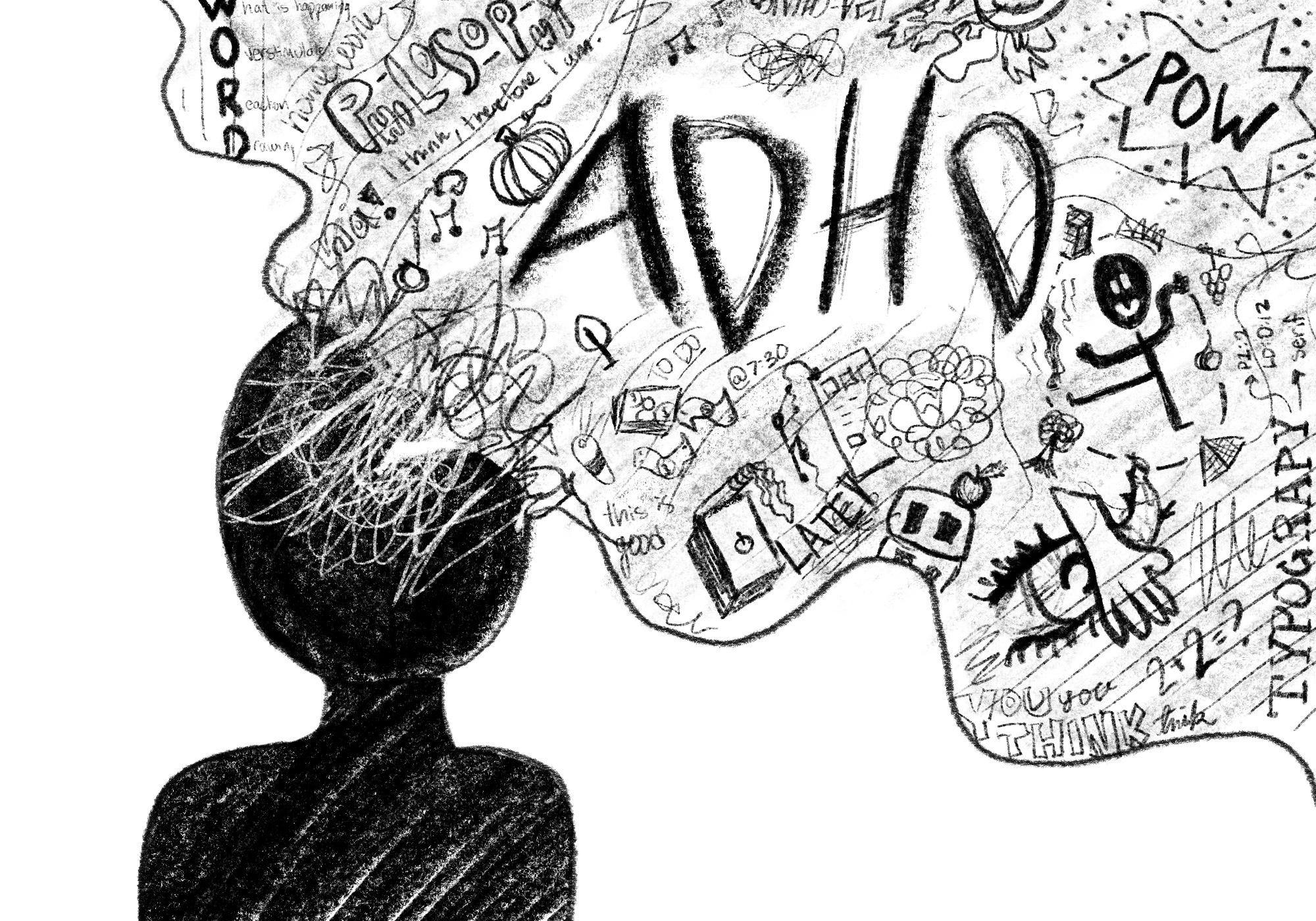Attention-deficit/hyperactivity disorder (ADHD) is a very common condition among students, but in many cases, remains diagnosed and shows a wide variety of symptoms in individuals.
Associate Professor Kristin Rispoli in the department of Counseling, Educational Psychology and Special Education said it is a brain-based neurodevelopment disorder, specifically in frontal lobe related behaviors.
Common displays of symptoms are thought to be short attention spans and hyperactivity, and the disorder itself is largely seen as a learning disability. However, there are many other symptoms that can be traced to ADHD and it affects people in more ways than just academics.
Kelsey Foote, ability access specialist at the Resource Center for Persons with Disabilities at Michigan State University, said that academically, students may find difficulty in “focusing on, processing, and retaining the information,” but also in switching between tasks. She said common symptoms include inattention, fidgeting and difficulty in staying organized.
Unfamiliar symptoms might be sensory sensitivities, struggles with emotional regulation and “task paralysis.”
Task paralysis affects people in completing activities. No matter how much an individual may want to complete a task, they cannot force themselves to do it, according to Foote.
Task paralysis is one of the large factors that affects digital storytelling freshman Max Watkins.
“When I want to start things, I really actually feel (the task paralysis)," Watkins said. "I feel like I can’t begin the things I want to do because it won’t provide me with any gratification at all. The desire to start things is there but the process of actually doing it just sort of fills me with dread and anxiety.”
Watkins said that deadlines are helpful for him with completing assignments. He said he would scramble to hit deadlines, but they eventually forced him to finish the task at hand, something he would not do on his own.
ADHD still has its effects on regular day-to-day life. Rispoli said ADHD can cause a lack of self-awareness and emotional regulation.
“Traditionally, what often has been used to characterize ADHD are difficulties with inattention and/or hyperactivity and impulsivity,” Rispoli said. “What that can look like though, often times reflects a larger group of skills related to self regulation. Skills that are self-awareness of ones actions or self awareness of ones ability to plan ahead and organize behavior or control of emotions.”
The effects of the disorder vary among individuals though. Watkins said he struggles most with beginning on personal passion projects and sometimes eating since his medication serves as an appetite suppressant.
One notable aspect of ADHD is that it is highly under diagnosed, especially in females. Foote said females display “differences in symptoms, socialization, and gender stereotypes/roles,” compared to the more commonly seen hyper-activity in males.
“I think ADHD is one of the disorders we often refer to as an invisible disorder," Rispoli said. "What we mean by that is that individuals with ADHD typically do not look any different than individuals who do not have ADHD. So at times the difficulties that they experience could be misinterpreted as intentionally misbehaving or just maybe having low skills, but really this disorder is a disorder of performance."
One important finding Rispoli said she found through others' research is that without treatment, ADHD can reduce life expectancy “quite significantly.”
ADHD has a lot of stigma around it, according to Watkins, explaining that this stigma deterred him for a while from getting officially diagnosed. He said he was diagnosed in Nov. 2022, but was aware he had it before then. He avoided getting on medication due to the stigma around being diagnosed with “mental condition.”
“I think more and more people are discovering they have it," Watkins said. "I think awareness of ADHD, and particularly destigmatization of ADHD is one of the things that I really think is important because it’s something that really prevented me from getting medication for a long time."
Watkins said that he started taking medication to treat his ADHD, and has noticed himself being more productive. However, Foote said there is no “one size fits all” medication to treat ADHD, and individuals should consult a doctor or reference MSU CAPS.
Foote and Rispoli said that a greater awareness of the disorder can create a more affirming and accepting environment for those who struggle with it.
Support student media!
Please consider donating to The State News and help fund the future of journalism.
Discussion
Share and discuss “ADHD: Effects and the benefits of diagnosis” on social media.







